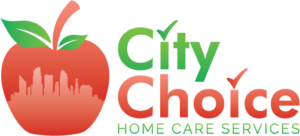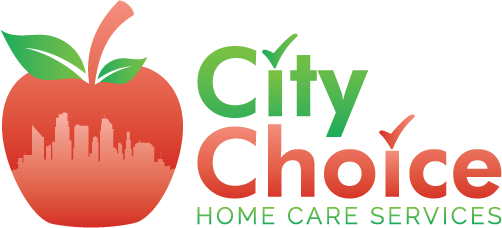Do you know there are several home health expenses you can claim as tax-deductible? Many NYC locals don’t realize just how much they could save on their annual taxes by understanding and properly managing these costs.
Here’s a comprehensive overview of how to make the most out of tax-deductible home health costs in New York by doing these five things:
- Understand the Tax Rules
Make sure you understand the eligibility requirements for home health care deductions. In the United States, including New York, certain expenses related to home health care services may be eligible for tax deductions if they meet specific criteria. Here are some general points to consider:
- Medical Necessity
The home health care expenses must be deemed medically necessary. This means that they are primarily for the prevention, diagnosis, or treatment of a medical condition.
- Qualified Individual
The deductions typically apply to qualified individuals who require assistance with activities of daily living, have a chronic illness or disability, or are chronically ill. There may be specific guidelines regarding the individual’s physical or cognitive condition to qualify for the deductions.
- Certification
A certified healthcare professional, such as a doctor must provide a written certification stating that the individual requires home healthcare services due to their medical condition.
- Type of Expenses
Eligible expenses may include payments made for skilled nursing care, personal care services, therapy services, medical supplies, and other necessary services provided at home. Non-medical services or general household services are generally not deductible.
- Amount of Expenses
To claim a deduction, the total eligible expenses for home health care and other medical expenses must exceed a certain threshold. The threshold is subject to change and may depend on factors such as age and filing status.
- Keep Records of Expenses
The benefits of maintaining organized records extend beyond just financial reimbursement. Keeping track of medical expenses can help you identify trends in your healthcare spending and plan for future expenses. Plus, proper documentation can ensure you take advantage of all available deductions during tax season.
Here are some types of records you must keep:
- Itemized Out-of-Pocket Medical Expenses
Most health insurance companies provide an annual summary of out-of-pocket expenses for medical care, but it’s important to keep itemized records as well. These documents should include the type and cost of each service you received, who provided it, and when it was received.
- Insurance Statements
Your insurance company should provide a detailed account of all eligible expenses and reimbursements for the tax year. This information should include dates, providers, and amounts associated with each claim.
- Other Medical Records
You will need to document any medical care or services not covered by your health insurance, such as acupuncture or chiropractic services. Keep copies of all receipts and invoices related to these expenses in case you need to provide proof of payment for tax purposes.
- Prescription Records
Prescription drugs are eligible for medical expense deduction if they exceed 7.5% of your adjusted gross income (AGI). Keep a record of all prescription drugs purchased throughout the tax year and the amount paid for each one.
- Take Advantage of Benefits
In New York, there are no specific state tax credits or deductions solely for home health expenses. However, you may still be able to take advantage of the following federal tax provisions:
- Dependent Care Flexible Spending Account (FSA): If you have a Dependent Care FSA through your employer, you can contribute pre-tax dollars to pay for eligible dependent homecare expenses. The IRS determines the maximum annual contribution limit for a Dependent Care FSA, which may vary from year to year.
- Earned Income Tax Credit (EITC): If you meet certain income and eligibility criteria, you may qualify for the federal Earned Income Tax Credit. The EITC is a reimbursable tax credit designed to assist families/individuals with a limited to moderate income. While it’s not specific to home health expenses, the credit can help provide some financial relief overall.
- Disabled or Elderly Tax Credit: The federal tax code provides a tax credit for individuals who are elderly or disabled. To be eligible, you generally need to meet specific age or disability criteria. While this credit doesn’t specifically target home health expenses, it can still help offset your overall tax liability.
- Consult a Professional
Engaging the services of a qualified accountant or financial advisor can be immensely valuable when maximizing your home health care deductions. These professionals have the necessary training, experience and expertise in navigating the complex world of tax laws and regulations, ensuring that you can take advantage of all eligible deductions while staying compliant with the latest rules.
By thoroughly analyzing your financial situation and understanding the specific requirements for home health care deductions, they can provide tailored advice and strategies to optimize your tax savings.
An experienced accountant or financial advisor can review your medical expenses, including home health care costs, and determine the most effective approach for maximizing deductions. They can help you gather and organize the necessary documentation, such as medical receipts, invoices, and certification from healthcare professionals, to support your claims.
Additionally, they can guide you on meeting the threshold for deductibility and exploring other potential tax benefits related to home health care, such as flexible spending accounts or credits that may be available at the federal or state level.
- File Early and Accurately
Filing your taxes early and ensuring the accuracy of all information is crucial to avoid missing out on potential savings from deducting qualifying home health costs. Here are three ways to make sure your taxes are filed correctly and on time:
- Gather all of the necessary forms and documents required for filing. This includes W-2s, 1099s, bank statements, medical bills, receipts for expenses related to home health care and any other documentation relevant to your taxes.
- Use reliable tax software to ensure accuracy. A reliable tax software program can help you fill out forms correctly and double-check your calculations for errors.
- Make sure to file on time and pay any taxes due. Filing your tax return late may result in penalties or interest, so it’s essential to stay organized and meet the deadline. Additionally, if you owe taxes, make any payments before the April 15th deadline.
Wrapping Up
There are various ways and means that you can save on the annual cost of home health care in New York State if you know what and how to go about it. The very first of these ways includes doing the necessary research to find relevant information that can help or point you in the right direction. Following these aforementioned tips can empower you to maximize your tax-deductible home health costs.



